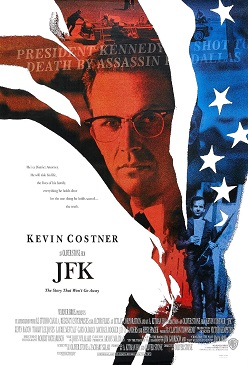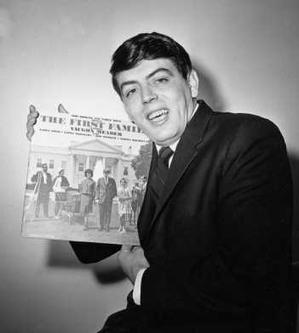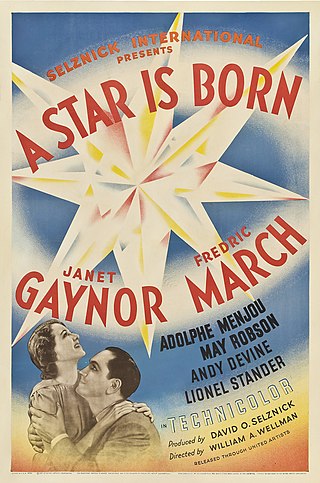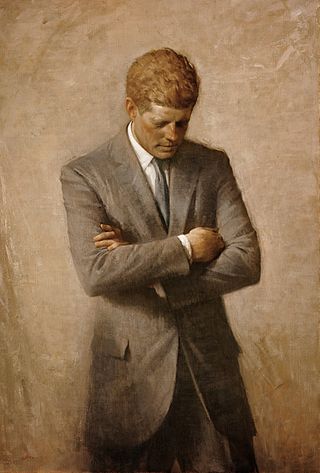
Doris Day was an American actress and singer. She began her career as a big band singer in 1937, achieving commercial success in 1945 with two No. 1 recordings, "Sentimental Journey" and "My Dreams Are Getting Better All the Time" with Les Brown and His Band of Renown. She left Brown to embark on a solo career and recorded more than 650 songs from 1947 to 1967.

Franklin James Schaffner was an American film, television, and stage director. He won the Academy Award for Best Director for Patton (1970), and is known for the films Planet of the Apes (1968), Nicholas and Alexandra (1971), Papillon (1973), and The Boys from Brazil (1978). He served as president of the Directors Guild of America between 1987 and 1989.

JFK is a 1991 American epic political thriller film written and directed by Oliver Stone. The film examines the investigation into the assassination of John F. Kennedy by New Orleans district attorney Jim Garrison, who came to believe there was a conspiracy to assassinate Kennedy and that Lee Harvey Oswald was a scapegoat.

Mr. Holland's Opus is a 1995 American drama film directed by Stephen Herek, produced by Ted Field, Robert W. Cort, and Michael Nolin, and written by Patrick Sheane Duncan. The film stars Richard Dreyfuss in the title role of Glenn Holland, a dedicated high-school music teacher who attempts to compose his own music while struggling to balance his job and life with his wife and profoundly deaf son. The cast also includes Glenne Headly, Olympia Dukakis, William H. Macy, and Jay Thomas.

Frank Wilton Marshall is an American film producer and director. He often collaborates with his wife, film producer Kathleen Kennedy, with whom he founded the production company Amblin Entertainment, along with Steven Spielberg. In 1991, he founded, with Kennedy, The Kennedy/Marshall Company, a film production company. Since May 2012, with Kennedy taking on the role of President of Lucasfilm, Marshall has been Kennedy/Marshall's sole principal.

PT 109 is a 1963 American Technicolor Panavision biographical war film depicting the actions of John F. Kennedy as an officer of the United States Navy in command of Motor Torpedo Boat PT-109 in the Pacific theater of World War II. The film was adapted by Vincent Flaherty and Howard Sheehan from the book PT 109: John F. Kennedy in World War II by Robert J. Donovan, and the screenplay was written by Richard L. Breen. Cliff Robertson stars as Kennedy, and the film features performances by Ty Hardin, James Gregory, Robert Culp and Grant Williams.

Julius J. Epstein was an American screenwriter, who had a long career, best remembered for his screenplay, written with his twin brother, Philip, and Howard E. Koch, of the film Casablanca (1942), for which the writers won an Academy Award. It was adapted from an unpublished play, Everybody Comes to Rick's, written by Murray Bennett and Joan Alison.

Abbott Vaughn Meader was an American comedian, impersonator, musician, and film actor.

Around the world, there were shocked reactions to the assassination of John F. Kennedy, the President of the United States, on Friday, November 22, 1963 in Dallas, Texas.
A roadshow theatrical release or reserved seat engagement is the practice of opening a film in a limited number of theaters in major cities for a specific period of time before the wide release of the film. Roadshows would generally mimic a live theatre production, with an upscale atmosphere as well as somewhat higher prices than during a wide release. They were commonly used to promote major films from the 1920s–60s and build excitement.

The Sixth Floor Museum at Dealey Plaza is a museum located on the sixth floor of the Dallas County Administration Building, formerly the Texas School Book Depository, in downtown Dallas, Texas, overlooking Dealey Plaza at the intersection of Elm and Houston Streets. The museum examines the life, times, assassination, and legacy of United States President John F. Kennedy, and the life of Lee Harvey Oswald, as well as the various conspiracy theories surrounding the assassination. The Sixth Floor Museum neither encourages nor discourages the idea of conspiracy theories. A Gallup poll released in 2023 showed 65% of U.S. adults believe Oswald did not act alone, up four percent from 2013.

A Star Is Born is a 1937 American Technicolor drama film produced by David O. Selznick, directed by William A. Wellman from a script by Wellman, Robert Carson, Dorothy Parker, and Alan Campbell, and starring Janet Gaynor as an aspiring Hollywood actress, and Fredric March as a fading movie star who helps launch her career. The supporting cast features Adolphe Menjou, May Robson, Andy Devine, Lionel Stander, and Owen Moore. At the 10th Academy Awards, it became the first color film to be nominated for the Academy Award for Best Picture.

Timequest is a 2000 science-fiction film directed by Robert Dyke and starring Victor Slezak as John F. Kennedy, Caprice Benedetti as Jacqueline Kennedy, and Ralph Waite as the Time Traveler. The film also features Vince Grant and Bruce Campbell. After premiering on April 13, 2000, the film had a limited theatrical release in the United States, followed shortly by distribution on VHS and DVD to the United States, Canada, and Australia. Timequest explores the science fiction theme of altering the present day by traveling back in time and tampering with past events – specifically, preventing the assassination of John F. Kennedy.

The Desert Song is a 1929 American pre-Code operetta film directed by Roy Del Ruth and starring John Boles, Carlotta King, Louise Fazenda, and Myrna Loy. It was photographed partly in two-color Technicolor, the first film released by Warner Bros. to include footage in color. The film included a 10-minute intermission during which music was played.
A spoken word album is a recording of spoken material, a predecessor of the contemporary audiobook genre. Rather than featuring music or songs, the content of spoken word albums include political speeches, dramatic readings of historical documents, dialogue from a film soundtrack, dramatized versions of literary classics, stories for children, comedic material, and instructional recordings. The Grammy for Best Spoken Word Album has been awarded annually since 1959.

The Zapruder film is a silent 8mm color motion picture sequence shot by Abraham Zapruder with a Bell & Howell home-movie camera, as United States President John F. Kennedy's motorcade passed through Dealey Plaza in Dallas, Texas, on November 22, 1963. Unexpectedly, it captured the President's assassination.
Fiona Kennedy Clark, OBE, DL is a Scottish singer, actress and broadcaster, and the daughter of Scottish and Gaelic singers Calum Kennedy and Anne Gillies. As a child she appeared with her parents as they performed as a family, and this developed into a successful solo career.
George Cooper Stevens Jr. is an American writer, playwright, director, and producer. He is the founder of the American Film Institute, creator of the AFI Life Achievement Award, and co-creator of the Kennedy Center Honors. He has also served as Co-Chairman of the President's Committee on the Arts and Humanities.

Cultural depictions of John F. Kennedy, the 35th American president, include films, songs, games, toys, stamps, coins, artwork, and other portrayals.

Cynthia Chinasaokwu Onyedinmanasu Amarachukwu Owezuke Echimino Erivo is a British actress and singer. She has received several accolades, including a Daytime Emmy Award, a Grammy Award and a Tony Award, as well as nominations for two Academy Awards and four Golden Globe Awards. She is one of only a few artists to have received nominations for the EGOT.















